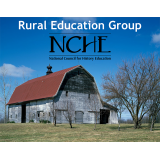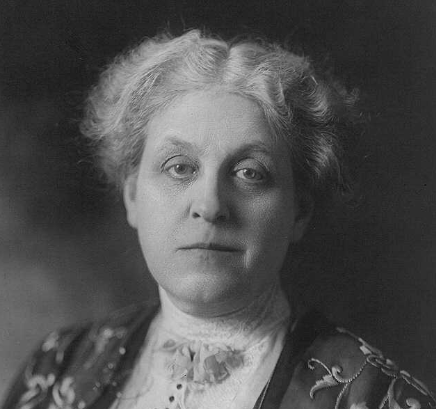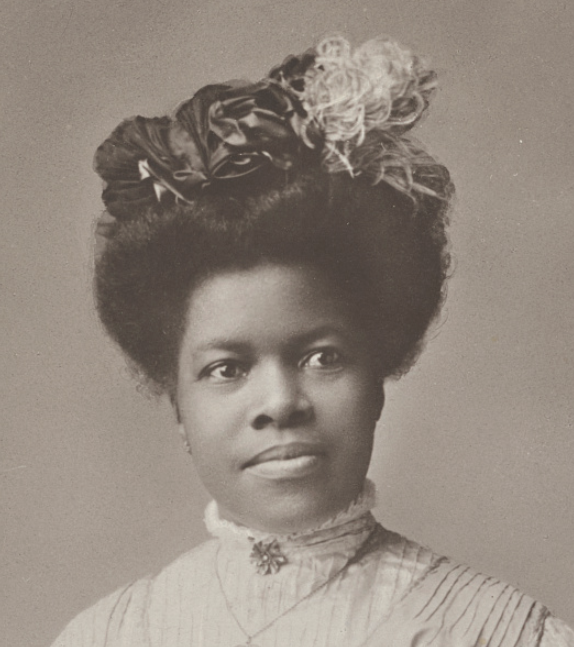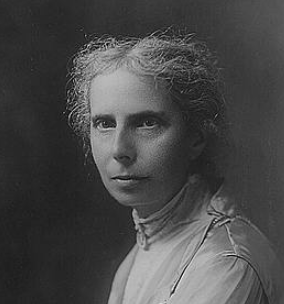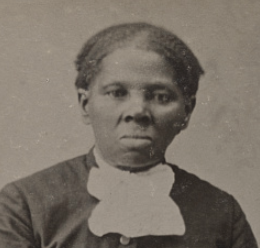Frederick Jackson Turner,
"The Significance of the Frontier in American History"
1893
1. How does Turner represent rural places and people in his thesis?
- Turner represents the rural places and people as true Americans. They live simpler lives than urban inhabitants, but Turner felt the challenges of rural places require the people to create new methods of adapting. They also have to be brave to move away from the established order of the East. Overall, he is fairly positive towards those living in rural landscapes.
- How might this thesis have shaped the perspectives of those living away from the frontier?
- People living away from the frontier may have been influenced to view westward expansion as a natural and essential part of American progress and development. The essay is thick with allusions to Manifest Destiny, the idea that it was ordained by the Creator for Americans to "bring progress and civilization" to the western territories. His essay could have even served as an inspiration for people who wanted to invest in the economics of the West by participating in industries related to western expansion, such as agriculture, mining, or transportation. They might have become more aware of the importance of understanding and preserving the history of westward expansion as a vital part of the American heritage. This was certainly a romanticized and positive view, at least in terms of Americans moving west.
- How do you think people who lived in the “frontier” would have reacted to Turner’s thesis?"
- If any of them read it, they might have felt pride. Turner validated their role in American history. Most of the time rural Americans are left out of the narrative, but he placed them in a position of importance. He acknowledged their struggles and praised their abilities to overcome them, and many of them could have appreciated that. There might have also been some who could have questioned what he knew about living on the frontier. He acknowledges the conflicts with Native Americans and does not gloss over their existence, even stating the number of conflicts the American military had with them, but he does not go into detail about the repercussions of those conflicts, for either side. He does not describe any of the challenges that could arise from life away from the cities of the east. Although he did grow up in Wisconsin, and certainly had experience, rural readers could have viewed his words as someone who was an Eastern intellectual elite.
"We're Still Here": Chicago's Native American Community
Daniel Hautzinger
NOVEMBER 8, 2018
- How did policies like the Indian Relocation Act of 1956 influence Indigenous peoples' experiences in urban settings? How did forced relocation impact indigenous communities' cultures, identities, and relationships with reservations and cities?
- Many Indigenous people were uprooted from their reservations and forced to adapt to urban environments. They undoubtedly encountered discrimination, prejudice, and cultural assimilation pressures from those in the cities. This could have led some of the younger generations to abandon their culture to fit in with their peers. Without places where the natives could express and preserve their culture, this impact could have been great. I have a friend whose grandma was sent, along with all of the other children on her reservation, to a boarding school. When the children returned they no longer had an interest in their tribal religion; they had all been forced to convert to Catholicism. They also were forbidden to speak their native tongue, so when the elders died, that language died with them. Today, the people on the reservation are Catholic and all speak English. Similar experiences could have been shared by those who moved to urban areas.
- In what ways do urban environments provide opportunities for cultural expression and community building that differ from reservation life?
- Urban environments, while they might not have the traditional landscape that the native Americans traditionally inhabited, have more resources to help protect and preserve culture, such as the American Indian Center which holds cultural events and provides resources to Native Americans. Additionally, being in an urban landscape offers more opportunities to reach people who are not Native, and can learn about and appreciate their culture.
- How does acknowledging the diversity of Native life, both in urban centers and rural communities, challenge monolithic portrayals of indigenous peoples?
- Indigenous peoples encompass a wide range of cultures, languages, traditions, and identities. Having the opportunities to learn about that diversity in centers and communities can help people understand that there is no singular Native American culture or even history. Geography influences the culture of all people, and Native Americans in one part of the continent will have different social, economic, and cultural dynamics accordingly.
Testimonials
- I love that there is new info on the site daily!
- I had a wonderful time working with the Library of Congress and learning about all of the resources at my fingertips!
- The TPS Teachers Network has an equal exchange of ideas. You know it's not a place where you're being judged.
- My colleagues post incredibly fine resources and ideas....the caliber of the suggestions and resources make me feel that I take a lot from it. It's a takeaway. And I hope that I can give back as much as I get.
- Going into this school year, I have a fantastic new resource for my own instruction and to share with my colleagues!
- I am very glad that I discovered the TPS Teachers Network through RQI. Great resources can be hard to find out there on the internet!

